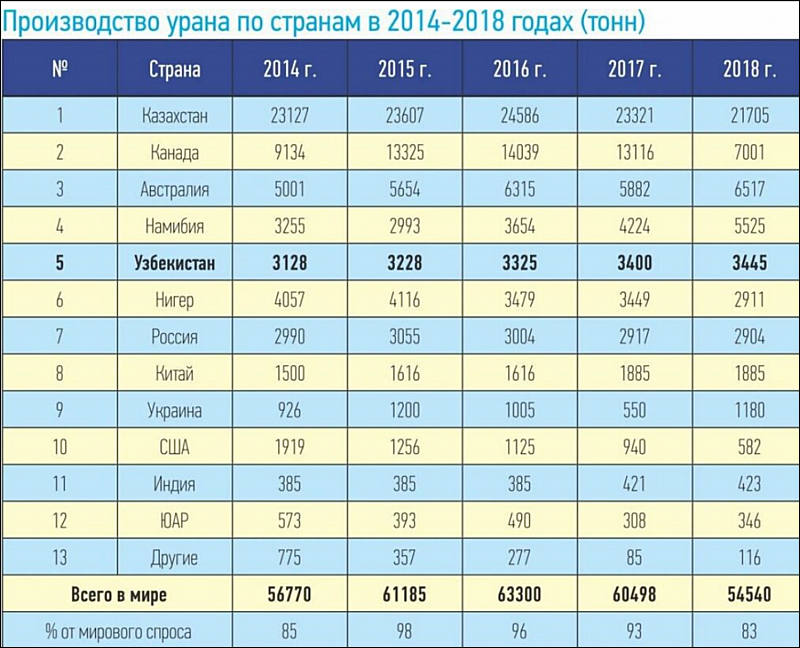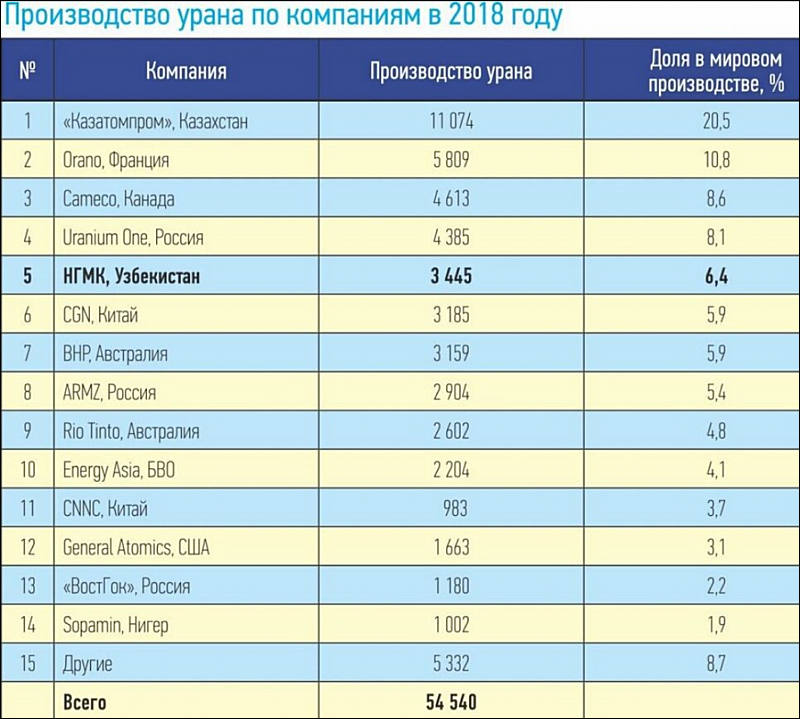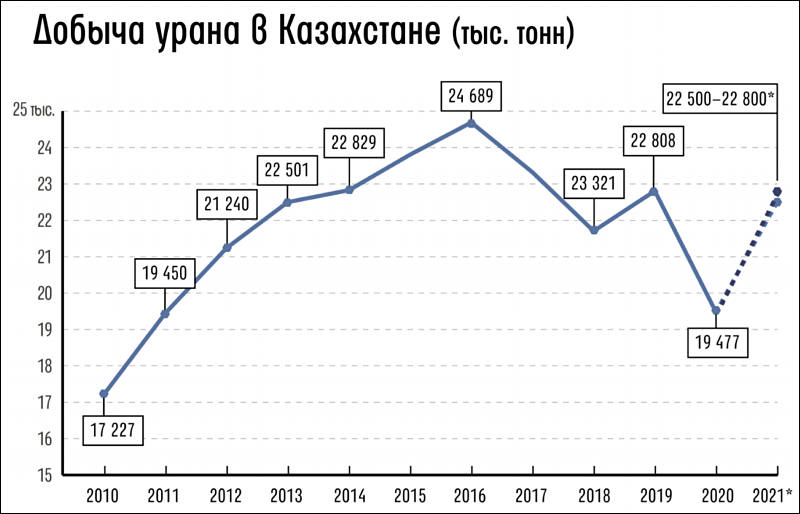
-
Back in 2008, Swiss physicist Michael Dittmar conducted a study and found that in the next few years, the world's nuclear power will face a shortage of uranium. Dittmar predicted a deficit by 2013 in countries importing radioactive fuel such as Japan (63 reactors at nuclear power plants). The United States also belongs to the countries-importers of nuclear fuel (102 reactors at nuclear power plants). The United States has no uranium enrichment industry at all. In this respect, they are completely dependent on supplies from horrible Mordor.
Every year in the world, approximately 435 reactors with a total capacity of over 370 GW, consume 65,500 tons of uranium. World production in 2009 was approximately 50,772 tons, which is approximately 78% of consumption. The market was balanced from secondary sources. Secondary sources include fuel processing plants, as well as military arsenals, which are being reduced in the course of disarmament. For example, Mordor sold to the United States recycled "stuffing" of nuclear missile warheads. The transfer of Mordor uranium to the United States took place in accordance with the Gore-Chernomyrdin agreement within the framework of the HEU-LEU (highly enriched to low enriched uranium) program. Due to this program, about half of all nuclear reactors in the United States operated. At the time of the termination of the HEU-LEU program (2012-2013), approximately 50 reactors had to be shut down in the United States, which are located mainly in the eastern part of the United States. Their share in electricity generation in the eastern states reaches 40%. Of course, this could lead to a world-class catastrophe. In addition to the USA, France and Japan have more than 50 reactors. In France, the share of nuclear power generation reaches 77%. Therefore, the shutdown of 50 reactors there would simply liquidate this country. Power generation in Japan is distinguished by the fact that each nuclear reactor there is backed up by a thermal block in case of failure of the reactor. Therefore, the shutdown of a nuclear power plant in Japan only leads to additional costs for fossil fuels, but not to a national disaster. Therefore, obviously, it was Japan that was chosen for shutdown.
Capitalism faced resources shortages in all areas now.
-
it would be ironic if uranium deposits ran out and then we couldn't refresh nuclear arsenals and then the whole world is nuke free in 40 years! if coal runs out, maybe natural gas reserves will last longer. I am not aware of a self-replenishing process, but we better get started on recycling energy on a global scale.
-
Nuke free is not good, actually it is very bad, same as world free from chemical weapons and such.
It won't be anything that will hold big bullies in this case.
-
maybe, but it would stop little bullies.
-
Per country and per company production



 sa16723.jpg800 x 648 - 100K
sa16723.jpg800 x 648 - 100K
 sa16724.jpg800 x 719 - 95K
sa16724.jpg800 x 719 - 95K -
New order from US came
The decision to suspend the operation of the Tokai-2 nuclear power plant was issued on March 18 by the Mito District Court.
The litigation was triggered by a claim by 224 people demanding an injunction against the aging nuclear power plant.
The court agreed with the arguments of the plaintiffs, stating that the readiness to liquidate the consequences of a natural disaster at the nuclear power plant is extremely insufficient, and acknowledging the absence of well-thought-out evacuation plans and a system for their implementation.
The lawyers who represented the interests of the plaintiffs called the decision “epoch-making”.
It is directly linked to new US administration, as previous nuclear disaster that allowed to switch of all nuclear reactors had been caused by major US diversion also made by democrats administration.
Howdy, Stranger!
It looks like you're new here. If you want to get involved, click one of these buttons!
Categories
- Topics List24,041
- Blog5,725
- General and News1,376
- Hacks and Patches1,153
- ↳ Top Settings33
- ↳ Beginners256
- ↳ Archives402
- ↳ Hacks News and Development56
- Cameras2,384
- ↳ Panasonic995
- ↳ Canon118
- ↳ Sony156
- ↳ Nikon96
- ↳ Pentax and Samsung70
- ↳ Olympus and Fujifilm102
- ↳ Compacts and Camcorders300
- ↳ Smartphones for video97
- ↳ Pro Video Cameras191
- ↳ BlackMagic and other raw cameras132
- Skill1,960
- ↳ Business and distribution66
- ↳ Preparation, scripts and legal38
- ↳ Art149
- ↳ Import, Convert, Exporting291
- ↳ Editors191
- ↳ Effects and stunts115
- ↳ Color grading197
- ↳ Sound and Music280
- ↳ Lighting96
- ↳ Software and storage tips266
- Gear5,420
- ↳ Filters, Adapters, Matte boxes344
- ↳ Lenses1,582
- ↳ Follow focus and gears93
- ↳ Sound499
- ↳ Lighting gear314
- ↳ Camera movement230
- ↳ Gimbals and copters302
- ↳ Rigs and related stuff273
- ↳ Power solutions83
- ↳ Monitors and viewfinders340
- ↳ Tripods and fluid heads139
- ↳ Storage286
- ↳ Computers and studio gear560
- ↳ VR and 3D248
- Showcase1,859
- Marketplace2,834
- Offtopic1,330






